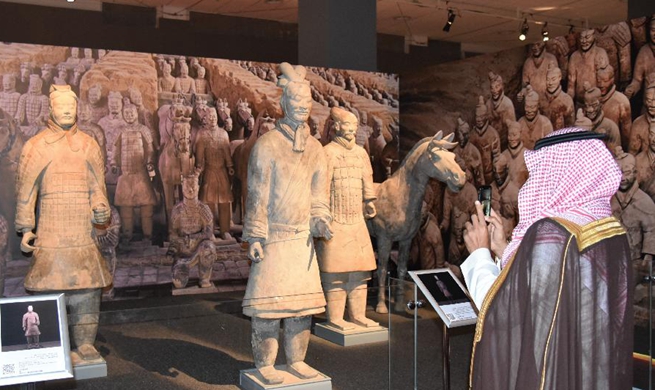NAIROBI, Sept. 13 (Xinhua) -- Kenyan banks have been placed at the center of corruption scandals after the Central Bank of Kenya (CBK) on Wednesday slapped several institutions with hefty fines for facilitating movement of looted cash.
The apex bank imposed fines on five large banks, ranging from 20,000 U.S. dollars to 1.5 million dollars, depending on the amount of money they handled.
The banks aided movement of millions of dollars looted from the National Youth Service, an institution that helps in the development of skills of young people.
The east African nation reportedly lost 90 million dollars in the scandal, in which several people have been charged in court.
According to the apex bank, the five institutions committed several violations that include failure to report large cash transactions, failure to undertake adequate customer due diligence, lack of supporting documentation for large transactions and lapse in reporting suspicious transactions to the Financial Reporting Center.
The unprecedented fines, according to analysts, highlight the role banks in Kenya have played in fueling runaway corruption.
"These fines place the banks at the center of every corruption in Kenya and must be punished if the country is to win the war against the menace," Henry Wandera, an economics lecturer in Nairobi, said Thursday.
Wandera noted that without banks, it would be impossible to commit mega corruption in Kenya.
"The banks act as the conduit through which the corrupt fleece money from public institutions into their pockets," said Wandera.
In the NYS scandal, money was wired from the institutions' bank accounts into those held by individuals and withdrawn in foreign currencies immediately it hit suspects' bank accounts.
"If these banks had reported the transactions, this money would not have ended up in peoples' pockets," said Wandera.
Kenya has stepped up the war on corruption in recent months, arraigning various suspects that include senior government officials.
President Uhuru Kenyatta has backed the renewed war on graft, noting he wants to leave a corruption-free country.
Other graft scandals in which suspects have been charged in court happened at Kenya Power and the National Cereals and Produce Board.
Bernard Mwaso, a consultant with Edell IT Solutions, noted that moving corruption cash has become easier through banks because of electronic systems.
"Initially, such transfers involved a lot of paperwork and would take days. Everything has now been computerized, including approvals, and it just takes a matter of hours before one gets the money," he said.
Mwaso welcomed the fines imposed on the banks, noting they were hefty enough to act as a deterrent.
To curb movement of corruption money, Kenya Bankers Association (KBA) has taken up several measures that include drafting guidelines to guide huge transactions.
Under the new rykes, any cash transaction on a single day of between 10,000 dollars and 100,000 dollars will require approval of branch manager while that between 100,000 dollars and 200,000 dollars will have to be approved by regional branch manager or more senior manager.
"Customers have to explain sources of their money, supported with evidence, before deposits are made. For withdrawal, they will have to explain reason for drawing out the money in cash," said KBA Chief Executive Habil Olaka.













